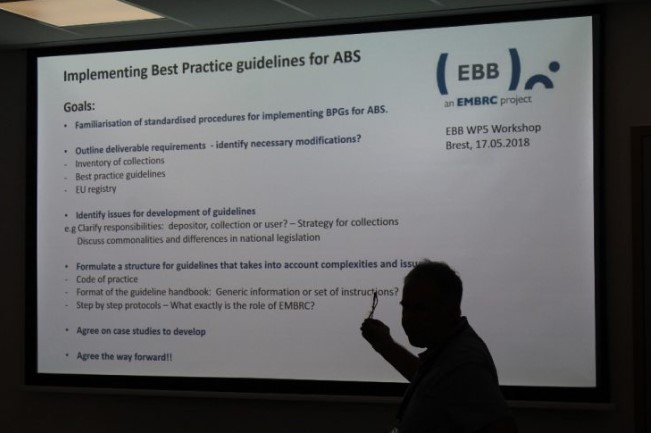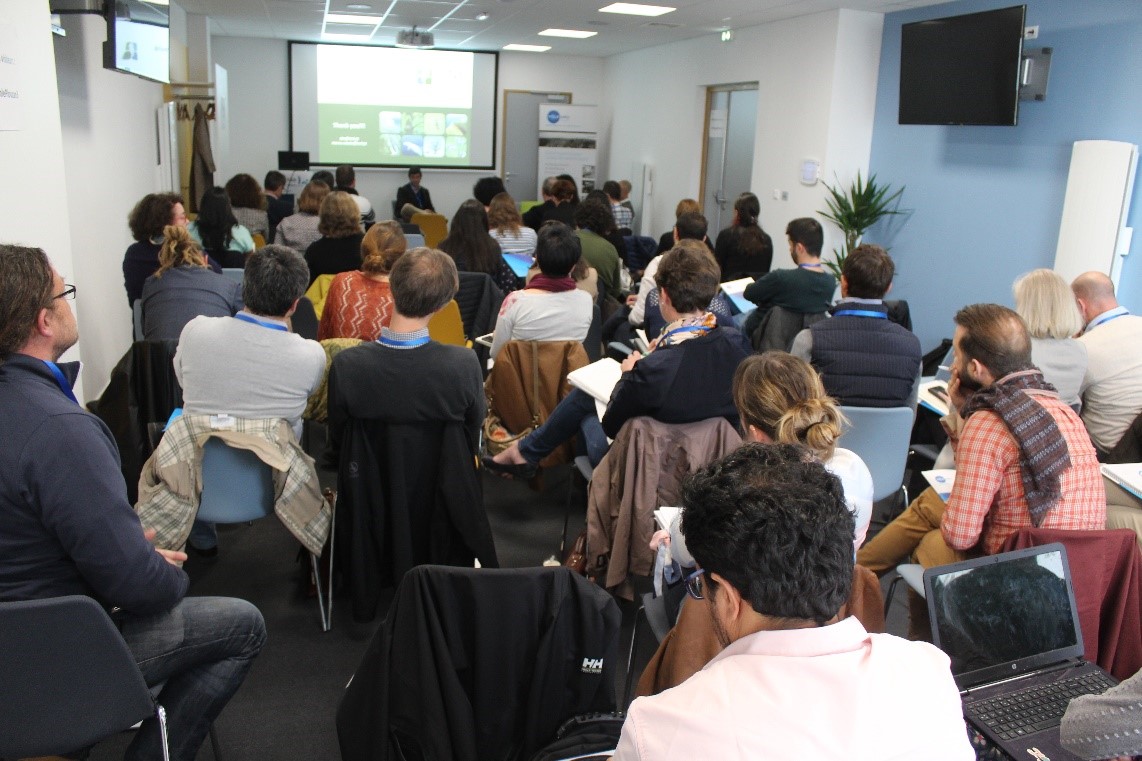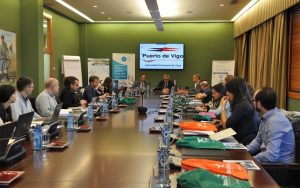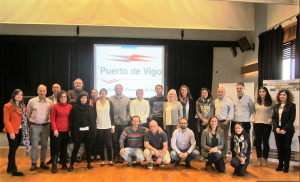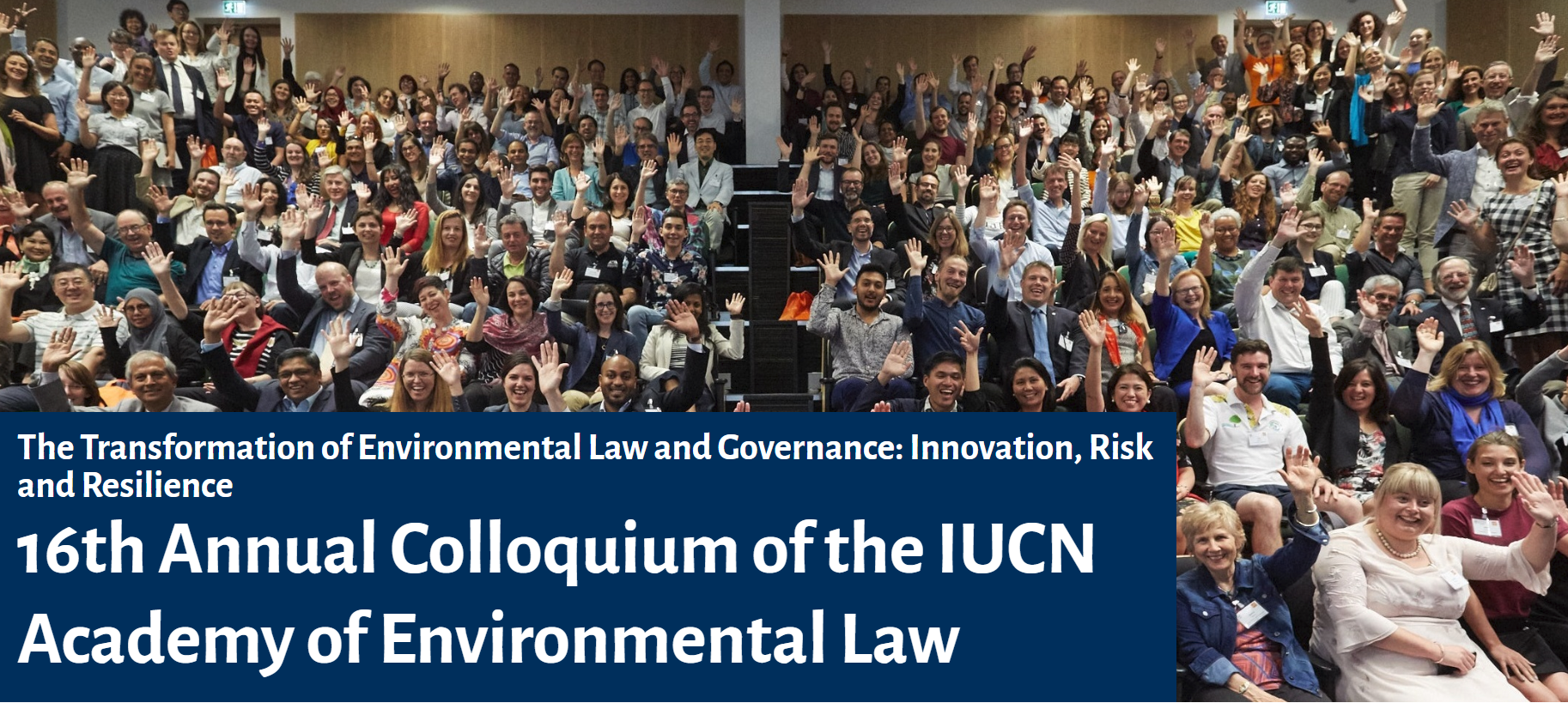Implementing best practice guidelines for Access and Benefit Sharing
The aims of this second one day workshop, that followed the previous more commercially focussed workshop, were to ensure all EBB project partners were familiar with Best Practice Guidelines and could discuss the process of implementing procedures within their institutions and the process for retrospective ABS compliance for existing genetic resources in collections. The workshop also identified differences in national legislation and discussed the ramifications of including collections in an EU registry. The event was attended by representatives from EBB project partner institutions, as well as Competent National Authorities on ABS from France and Spain and other experts.
The workshop opened with introductory presentations on BPGs and EU registry, by Anne-Emmanuelle (EMBRC-France) and Robert Yarlett (MBA), respectively. After the talks, the workshop followed a series of open discussions to decide on the next steps towards implementing BPGs and the practicalities and benefits of including the collections in an EU registry. There were also short discussions on retrospective ABS compliance and traceability of genetic resources.
Implications of collection registration with the EU registry that were discussed in the first workshop were further debated with input from the Competent National Authorities representatives. From a collection owner’s point of view, registration means that the collection assumes liability for ABS compliance. For an unregistered collection the user assumes liability for ABS compliance. A collection will therefore have less legal liability when making an unregistered collection available to a user and institutions may not wish to register all or parts of collections. Therefore a change in emphasis of WP5 from registration to aiding institutions/ organisations was discussed.
It was agreed by project partners’ that the key group focus should now be on collating BPGs into a handbook for EBB partners and implementing of those BPGs set out in the handbook in order to meet the legal obligations as stated under the Nagoya protocol (2014). The MIRRI and CETAF guidelines are a good basis for developing Best Practice Guidelines as a deliverable and everyone should be aware of them. Most attendees agreed that a step by step, guide to implementing BPGs would be helpful and partners made various suggestions about the form and content of the handbook.
Feedback was collected at the end of the workshop to gather opinions from attendees. In brief, there was a general consensus that the workshop had aided partner’s understanding of implementing BPGs within their institutions and most believe these to be feasible to implement and a priority.
The workshop has achieved the objectives of increasing understanding around ABS compliance and liability for collections supplying genetic material. On the basis of workshop discussions, collection registration is no longer seen as a desirable aim for most collections (due to legal liability remaining with the collection). This may change based on future discussions and as implementation of legislation proceeds and the processes are further developed.
Following the workshop a position paper has been produced which summarises the opinions, benefits and challenges which institutions face under the new ABS legislation. This is available on Basecamp along with a brief report on the feedback received at the workshop from delegates. The MBA are very grateful for the input of all delegates and the hard work Justine Pittera (PMBA) put into organising the workshop. Ibon Cancio (UPV/EHU) and other project team members and the Competent National Authorities are also thanked for their efforts in ensuring the success of this workshop.
This one day workshop, open to academic and commercial users of marine genetic resources, lead then to a second day workshop (17th of may) for EBB partners, to discuss on practicalities regarding registration and best practice guidelines.

